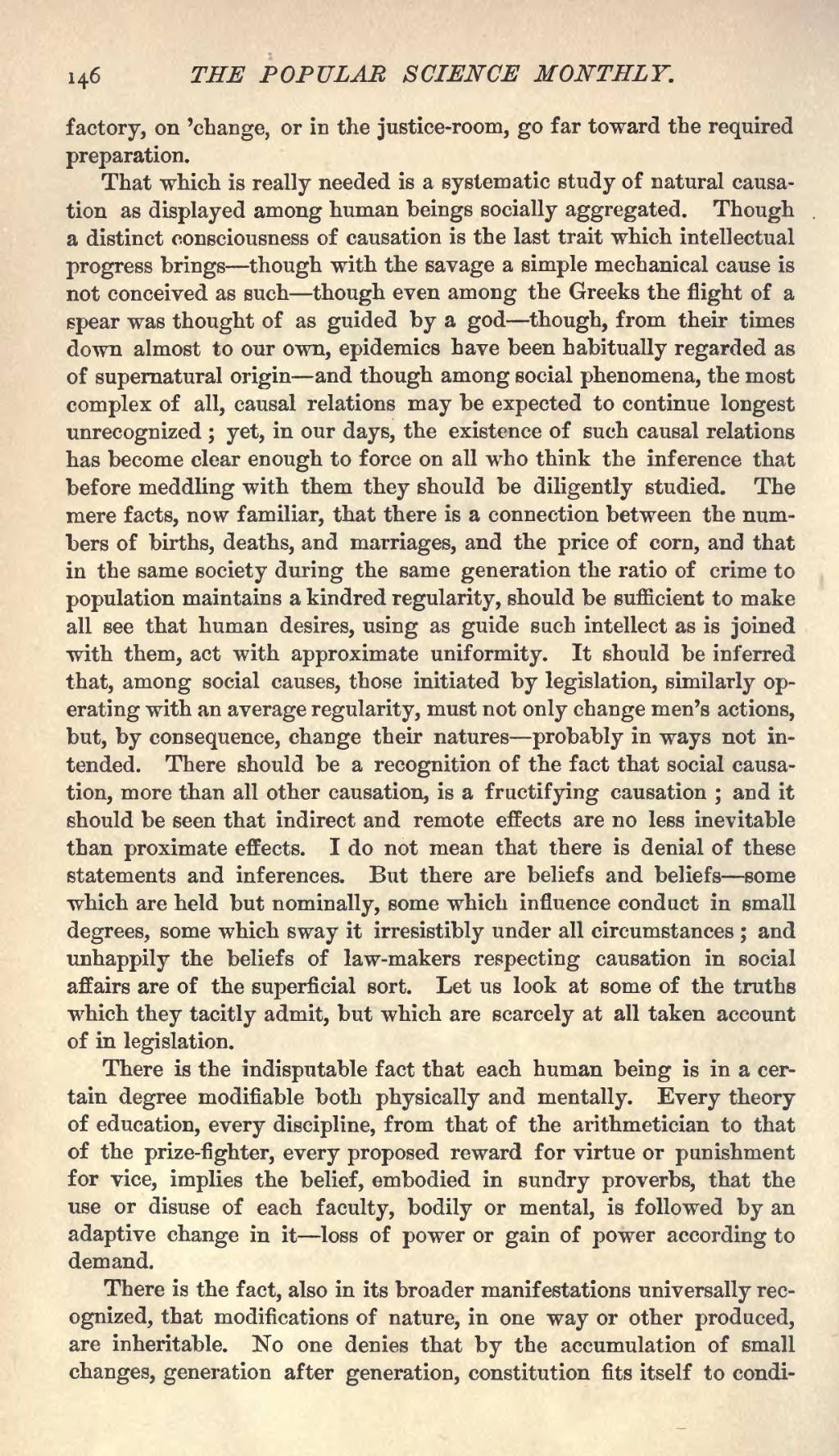factory, on 'change, or in the justice-room, go far toward the required preparation.
That which is really needed is a systematic study of natural causation as displayed among human beings socially aggregated. Though a distinct consciousness of causation is the last trait which intellectual progress brings—though with the savage a simple mechanical cause is not conceived as such—though even among the Greeks the flight of a spear was thought of as guided by a god—though, from their times down almost to our own, epidemics have been habitually regarded as of supernatural origin—and though among social phenomena, the most complex of all, causal relations may be expected to continue longest unrecognized; yet, in our days, the existence of such causal relations has become clear enough to force on all who think the inference that before meddling with them they should be diligently studied. The mere facts, now familiar, that there is a connection between the numbers of births, deaths, and marriages, and the price of corn, and that in the same society during the same generation the ratio of crime to population maintains a kindred regularity, should be sufficient to make all see that human desires, using as guide such intellect as is joined with them, act with approximate uniformity. It should be inferred that, among social causes, those initiated by legislation, similarly operating with an average regularity, must not only change men's actions, but, by consequence, change their natures—probably in ways not intended. There should be a recognition of the fact that social causation, more than all other causation, is a fructifying causation; and it should be seen that indirect and remote effects are no less inevitable than proximate effects. I do not mean that there is denial of these statements and inferences. But there are beliefs and beliefs—some which are held but nominally, some which influence conduct in small degrees, some which sway it irresistibly under all circumstances; and unhappily the beliefs of law-makers respecting causation in social affairs are of the superficial sort. Let us look at some of the truths which they tacitly admit, but which are scarcely at all taken account of in legislation.
There is the indisputable fact that each human being is in a certain degree modifiable both physically and mentally. Every theory of education, every discipline, from that of the arithmetician to that of the prize-fighter, every proposed reward for virtue or punishment for vice, implies the belief, embodied in sundry proverbs, that the use or disuse of each faculty, bodily or mental, is followed by an adaptive change in it—loss of power or gain of power according to demand.
There is the fact, also in its broader manifestations universally recognized, that modifications of nature, in one way or other produced, are inheritable. No one denies that by the accumulation of small changes, generation after generation, constitution fits itself to condi-
